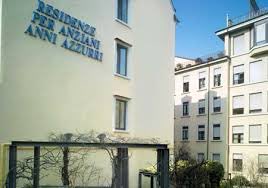 Kos group mulls shareholders reshuffle as Ardian private equity fund prepares to divest its 47% stake, Il Sole 24 Ore, wrote.
Kos group mulls shareholders reshuffle as Ardian private equity fund prepares to divest its 47% stake, Il Sole 24 Ore, wrote.
Kos is a leading Italian healthcare group in the areas of socio-medical assistance, residential chronic care, rehabilitation and psychiatry, advanced technologies applied to medicine and acute care medicines. Kos is controlled with a 53% stake by Cir, a holding company listed at the Italian Stock Exchange and owned by the De Benedetti family.
Next July 2016 a shareholders agreement will expire compelling Cir and Ardian to sell 100% of the group, but Cir is said to be willing to stay as a controlling shareholder so Ardian is expected to sell its stake before that date. Other private equity firms might be interested in joining Cir in Kos’ capital.
The Kos Group manages 75 facilities in Italy and has a total of over 7,100 beds with a further 200 beds soon to be added. Kos operates through nursing homes, rehabilitation centres, psychiatric treatment communities and mental health clinics, hospitals, diagnosis and therapy service centres (in Italy, India and UK), outpatient rehabilitation and diagnosis clinics.
Led by ceo Giuseppe Vailati Venturi, Kos reached 392.4 million euros of revenues in 2014 (+5.3% from 2013) with a net result of 12.3 millions (+4%) and 157 millions of net financial debt. The equity value of the group might be in a 550-600 million euros range MF Milano Finanza wrote last Sept. 4th, as EV/ebitda multiples for the sector are 11-12x.
Ardian invested in Kos back in October 2010, when the firm was still called Axa Private Equity. the fund acquired a 41.1% stake first and committed itself to raise its stake till 46.7% of Kos’s capital for a total consideration of 150 million euros of equity invested (download here the press release).
Founded in 2003 and part of CIR group, KOS is employing 4000 collaborators in 2010.The growth of the KOS Group from 2003 to today, due to both the typical characteristics of the healthcare sector and the Group’s ambitious growth objectives, occurred principally via the acquisition of already existing facilities or companies


